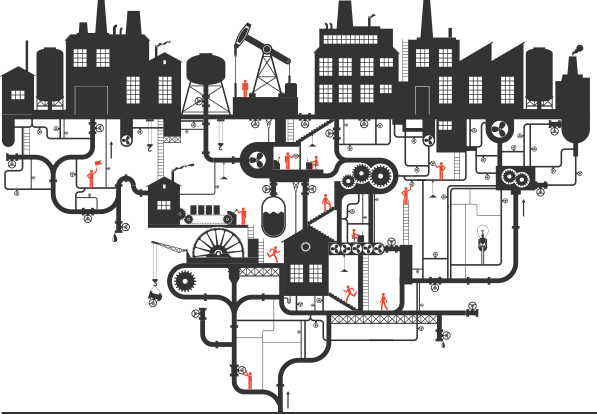
What is Asset Management…
Asset Management is the policy, strategy and activities which ensure the maximum value is generated by an asset during its planned life cycle, from commissioning to decommissioning. Assets produce value in that they contribute to the organization’s goals, in a Lean manufacturing environment the Asset Management System focuses on the use of production assets in delivering value to the customer through the manufacturing value stream.
The ISO 55000 standard outlines the fundamentals of Asset Management as:
- Value
Assets exist to provide value to the organization and its stakeholders - Alignment
Asset Management translates organizational objectives into technical and financial decisions and activities. - Leadership
Leadership and workplace culture are determinants of the realization of value. - Assurance
Asset Management gives assurance that assets fulfil their required purpose and are capable across their life cycle.
An Asset Management System
The focus of an Asset Management System is on the ability of assets to create value, and not on the assets themselves.
ISO 55001 standard contains the specific requirements which an Asset Management System must meet in order to be certified compliant. An Asset Management System consists of four key elements:
- Asset Management Policy
- Asset Management Strategy
- Asset Management Objectives
- Strategic Asset Management Plan – which details how to implement and control your Asset Management System
Here is where TPM comes in. TPM is basically a Strategic Asset Management Plan.
From autonomous maintenance to equipment management, the eight pillars of TPM encompass a proactive approach to manage and maintain assets so they provide maximum value throughout their life cycle.
Productivity Innovation can work with you to define (or refine) your asset management strategy and create an asset management plan rooted in the principles of TPM. Simultaneously, we will help to instill a culture change based on a shared vision, the establishment of clearly defined roles, the development of an autonomous workplace (where responsibility grows in accordance with skill development), and the implementation of team processes at all levels.


